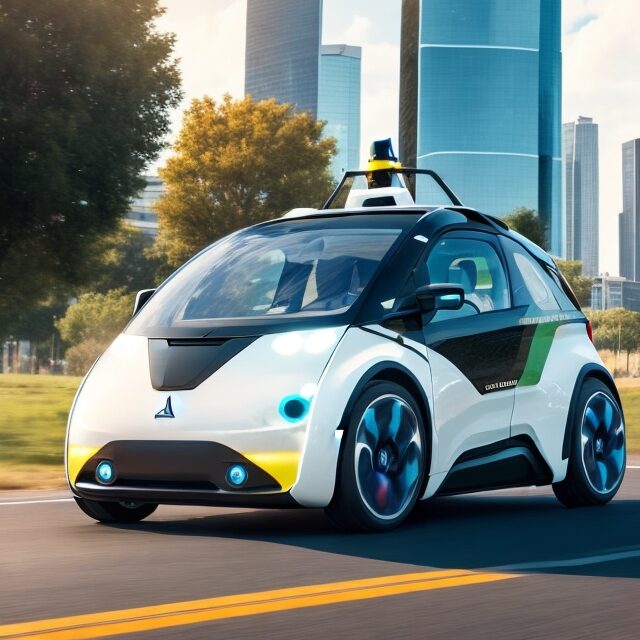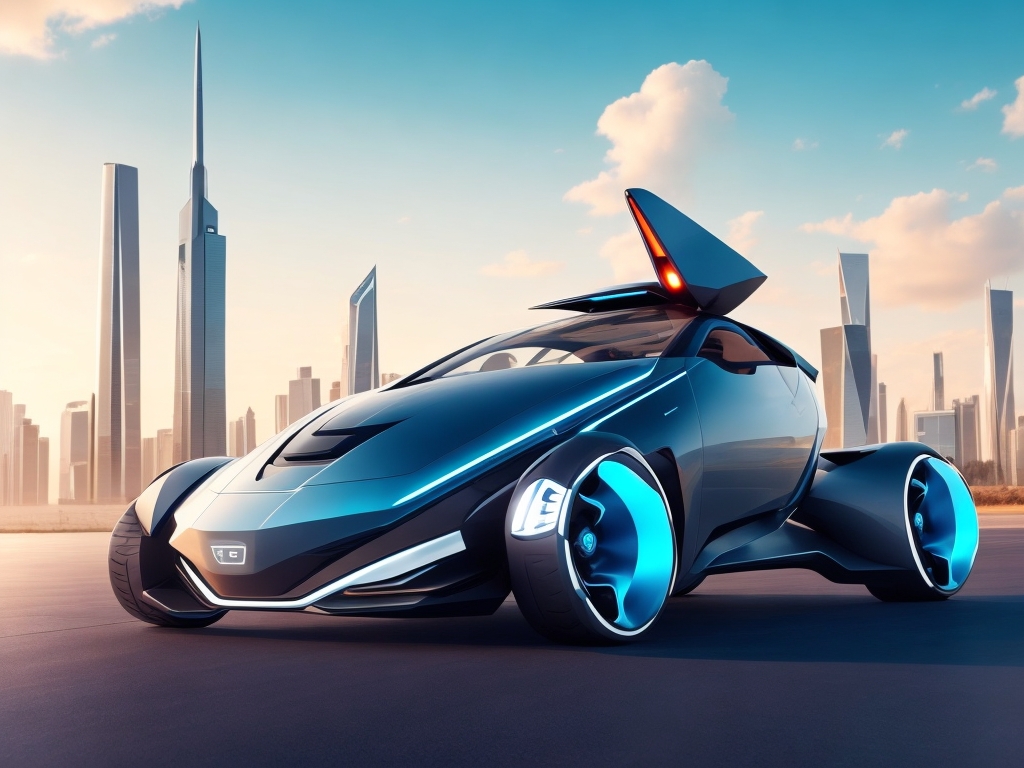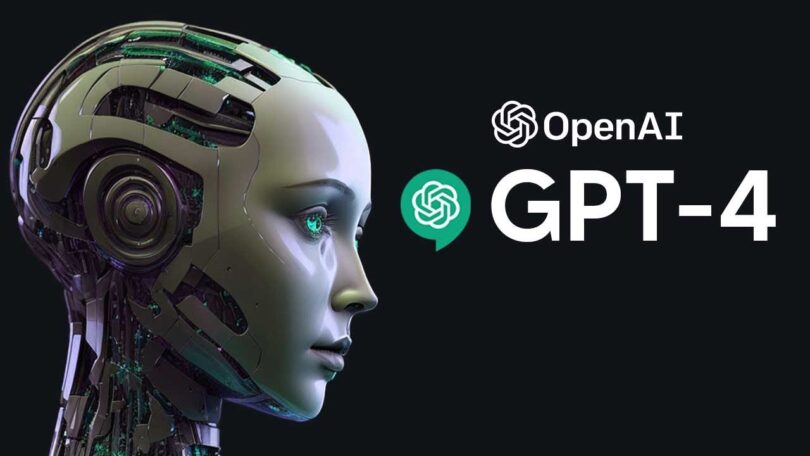Artificial Intelligence (AI) and Machine Learning (ML) have revolutionized various industries, and the automotive industry is no exception. The integration of AI and ML technologies in vehicles has paved the way for the development of autonomous vehicles, bringing forth a new era of mobility. In this article, we will explore the role of AI and ML in the automotive industry and their contribution to the realization of autonomous vehicles.
Introduction
The automotive industry has always been at the forefront of technological advancements. Over the years, we have witnessed remarkable innovations, from the introduction of electric vehicles to the implementation of advanced safety features. AI and ML have further accelerated this progress, enabling vehicles to become smarter, safer, and more efficient.
Understanding AI and ML in the Automotive Industry
What is Artificial Intelligence (AI)?
AI refers to the simulation of human intelligence in machines that are programmed to think and learn like humans. It encompasses various subfields, including machine learning, natural language processing, computer vision, and robotics. In the automotive industry, AI plays a vital role in enhancing vehicle capabilities, enabling them to perform tasks that traditionally required human intervention.
What is Machine Learning (ML)?
ML is a subset of AI that focuses on the development of algorithms and statistical models that allow machines to learn and make predictions based on data without being explicitly programmed. ML algorithms enable vehicles to analyze vast amounts of data collected from sensors and make informed decisions in real-time. This ability is crucial for autonomous vehicles, as they rely on ML to interpret their surroundings and navigate safely.
Applications of AI and ML in the Automotive Industry

Advanced Driver Assistance Systems (ADAS)
One of the prominent applications of AI and ML in the automotive industry is the development of Advanced Driver Assistance Systems (ADAS). ADAS technologies, such as adaptive cruise control, lane-keeping assist, and automatic emergency braking, utilize AI and ML algorithms to enhance driver safety and convenience. These systems can analyze sensor data, detect potential hazards, and take proactive measures to prevent accidents.
Autonomous Driving
Autonomous driving is perhaps the most significant advancement enabled by AI and ML in the automotive industry. Autonomous vehicles leverage a multitude of sensors, including cameras, lidar, and radar, to perceive their surroundings. Through ML algorithms, these vehicles can interpret the sensor data, make real-time decisions, and navigate autonomously without human intervention. Companies like Tesla, Waymo, and Cruise have made significant progress in developing autonomous vehicles, with some even offering limited autonomous features in their production models.
Predictive Maintenance
AI and ML algorithms also contribute to predictive maintenance in the automotive industry. By analyzing data collected from various vehicle components, such as engine performance, tire wear, and battery health, ML algorithms can identify patterns and predict potential failures before they occur. This proactive approach to maintenance minimizes vehicle downtime, reduces maintenance costs, and enhances overall reliability. For example, companies like BMW and Ford are implementing predictive maintenance systems in their vehicles to optimize maintenance schedules and prevent breakdowns.
Enhanced User Experience
AI and ML technologies are transforming the user experience in vehicles. Natural language processing enables voice commands and intelligent virtual assistants, allowing drivers to interact with their vehicles more intuitively. Additionally, personalized settings, adaptive infotainment systems, and contextual recommendations based on user preferences further enhance the overall driving experience. Companies like Mercedes-Benz and Audi are incorporating AI-driven virtual assistants, such as Mercedes-Benz's MBUX and Audi's MMI, to provide a more personalized and interactive driving experience.
Challenges and Opportunities in Implementing AI and ML
While AI and ML offer numerous benefits to the automotive industry, several challenges and opportunities must be addressed for successful implementation.
Data Security and Privacy
The increased reliance on AI and ML in vehicles raises concerns about data security and privacy. As vehicles collect and transmit vast amounts of data, it is essential to establish robust security measures to protect sensitive information from unauthorized access and cyber threats.
Ethical Considerations
Autonomous vehicles face ethical dilemmas in critical situations, such as deciding between potential harm to occupants or pedestrians. Addressing these ethical considerations and establishing ethical frameworks for decision-making is crucial for the widespread adoption of autonomous vehicles.
Regulatory Frameworks
The integration of AI and ML in the automotive industry necessitates the development of comprehensive regulatory frameworks. These frameworks should address safety standards, liability issues, and data privacy concerns to ensure the responsible deployment of autonomous vehicles.
Skills and Talent Gap
Implementing AI and ML technologies in the automotive industry requires a skilled workforce with expertise in data science, AI algorithms, and cybersecurity. Bridging the skills and talent gap is essential to capitalize on the opportunities presented by these technologies.
Future Prospects and Impact of AI and ML in the Automotive Industry
The future prospects of AI and ML in the automotive industry are vast. As technology continues to evolve, we can expect even more advanced AI-powered vehicles with improved safety features, optimized energy consumption, and seamless integration with smart city infrastructures. The impact of AI and ML in the automotive industry extends beyond autonomous vehicles, influencing various aspects such as transportation efficiency, mobility services, and urban planning.
Conclusion
AI and ML have propelled the automotive industry towards a future where autonomous vehicles will revolutionize transportation. From advanced driver assistance systems to predictive maintenance and enhanced user experiences, the applications of AI and ML in the automotive sector are diverse and impactful. While challenges such as data security, ethics, regulations, and skills remain, the road to autonomous vehicles is paved with immense opportunities for a safer, more efficient, and connected future.
FAQs
How are AI and ML transforming the automotive industry?
AI and ML technologies are transforming the automotive industry by enabling the development of advanced driver assistance systems, autonomous vehicles, predictive maintenance, and enhanced user experiences. These technologies enhance vehicle safety, efficiency, and overall user satisfaction.
Are autonomous vehicles safe?
Autonomous vehicles undergo rigorous testing and validation to ensure their safety. However, as with any emerging technology, there are challenges to address. Continued advancements in AI and ML, coupled with robust safety measures and regulatory frameworks, are gradually making autonomous vehicles safer and more reliable.
What are the major challenges in implementing AI and ML in the automotive industry?
Some major challenges in implementing AI and ML in the automotive industry include data security and privacy, ethical considerations, regulatory frameworks, and the skills and talent gap. Addressing these challenges is crucial for the successful integration of AI and ML technologies in vehicles.
How is predictive maintenance benefiting the automotive industry?
Predictive maintenance in the automotive industry helps prevent unplanned vehicle breakdowns and reduces maintenance costs. By analyzing data from various vehicle components, ML algorithms can predict potential failures, allowing proactive maintenance actions to be taken before issues escalate.
What skills are required to work in AI and ML in the automotive industry?
Working in AI and ML in the automotive industry requires expertise in data science, AI algorithms, machine learning, sensor technologies, cybersecurity, and software development. Strong analytical skills, programming proficiency, and a deep understanding of automotive systems are valuable in this field.












